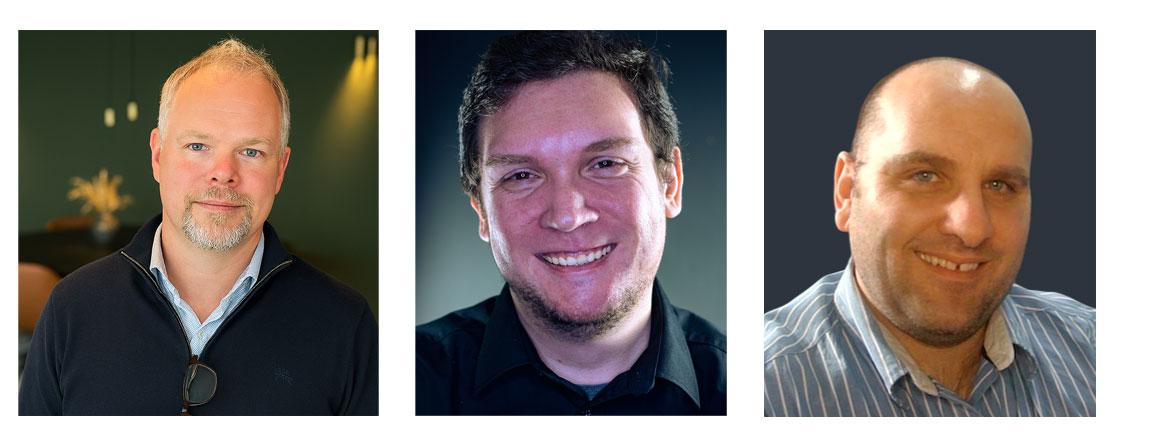With the new two-year programme in DevOps Engineering, you will learn to build, automate, and operate modern digital services. You become the driving force between development and operations, a skill set that is highly sought after in today’s job market.
From mobile apps and e-commerce to streaming services and public systems: everything we use in our daily lives depends on digital services that must be fast, secure, and always available. To achieve this, organisations need professionals who can develop, set up, and operate modern systems, and who understand how these components must work together.
Digitalisation has made us dependent on services that never pause. Still, development and operations teams in many organisations continue to work in silos, which can lead to unstable or outdated solutions at launch.
A key role in modern development projects
- Without clear collaboration between development and operations, you risk products becoming outdated before launch. The DevOps engineer ensures holistic thinking and value from day one, say Frederick Johannes Botha, Program Manager for the DevOps Engineering programme at Noroff, and Jean-Clive Bailey, DevOps Lecturer at Noroff.
Throughout the DevOps Engineering programme, you learn how modern digital services are built and operated from start to finish. You gain insight into automation, scripting, cloud computing, infrastructure, security, deployment, and monitoring.

From left: Kenneth Kallestad (Atea), Jean-Clive Bailey and Frederick Johannes Botha.
A rapidly growing job market
DevOps competence has become essential for modern development projects. Companies are looking for professionals who can build robust, scalable, and cost-effective solutions, and who understand the importance of close collaboration between development and operations.
- There is a significant need for competence in platform engineering, security, and infrastructure as code. We also see that many customers want closer collaboration between operations and development, says Kenneth Kallestad, Business Development Manager Consulting at Atea.
- We think ‘run first’ in everything we do. This makes solutions easier to operate, monitor, and troubleshoot, and leads to better customer experiences and more stable services, Kallestad says.
An education developed in close alignment with industry needs
Modern tech teams work in agile, iterative, and automated ways. DevOps Engineering is built around the same principles, giving you experience that closely reflects real industry practice.
Throughout the programme, you will learn to:
- build and operate services in the cloud
- develop CI/CD pipelines and automate deployments
- work with infrastructure as code
- monitor and troubleshoot systems in production
- collaborate effectively in cross-functional teams
- understand security and cost management in cloud-based systems
- The programme gives you insight into the entire ecosystem surrounding modern software development. You learn the processes and mindset that make digital services stable and user-friendly, say Botha and Bailey.
Who is the programme suited for?
DevOps Engineering is ideal for those curious about how things work and who enjoy solving problems in practice. You do not need prior experience with programming or advanced mathematics, the programme starts with the fundamentals and builds from there.
The programme is especially suited for those who:
- want to understand the full lifecycle of digital services
- enjoy problem-solving
- wish to work hands-on with technology
- want to be the link between development and operations
- are curious about automation, cloud technologies, and modern systems
- The most important qualities are curiosity and willingness to learn. We teach you everything you need to succeed in DevOps, say Botha and Bailey.
- Collaboration and holistic understanding are just as important as the technical skills. A good DevOps engineer must understand the needs of both developers and operations teams, adds Kallestad.
A practical and industry-focused programme
Through realistic projects, you learn to build, deploy, monitor, and improve systems in the same way professional DevOps teams do. The working methods mirror real practice and give you confidence before entering the job market.
You gain experience with:
- cloud services and modern cloud architecture
- automation and container technologies
- incident handling and monitoring in production
- agile methodologies and cross-functional collaboration
- security and best-practice routines
- You learn to take a service from idea to production and further into maintenance and monitoring. This holistic understanding is highly valued by employers, Bailey says.
A mindset for continuous change
DevOps is not just about tools, it's about culture, collaboration, and the ability to adapt quickly. Throughout the programme, you develop a problem-solver mindset and the confidence to work with technology that evolves constantly.
- The goal is for you to understand how digital services affect people, and to create solutions that actually work in practice. You should feel confident working in an industry that changes from month to month, says Botha.
Critical IT competence for the future
With DevOps Engineering, you gain an education closely aligned with industry needs. You develop technical skills, practical experience, and a holistic understanding of how digital services operate, and what it takes to make them function reliably.
- This programme meets the market perfectly. It will help create better projects, better data control, and more robust solutions across the entire industry, Kallestad concludes.
Programme facts
- Start date: 11 August 2026
- Duration: Two years full-time
- Credits: 60 ECTS per year
- Study model: 100% online, with fixed assessment points
Related programmes
Two-year programme
DevOps Engineering
Become the bridge between software development and IT operations. Learn to automate, deploy, and manage modern cloud-based systems, and gain the hands-on DevOps skills companies need to deliver reliable digital services.
Online
Read moreOne-year programme
Back-end Development
Become a backend developer, one of the most in-demand tech professions, and work on future web and server-based software solutions. Learn to use AI to streamline coding, debugging, and quality assurance.
Online
Oslo, Bergen, Kristiansand
Read moreTwo-year programme
Front-end Development
The technology education where visual design meets coding, web, and UX design. The high demand for front-end developers opens doors to a diverse career in IT and design.
Online
Oslo, Bergen, Kristiansand
Read more


